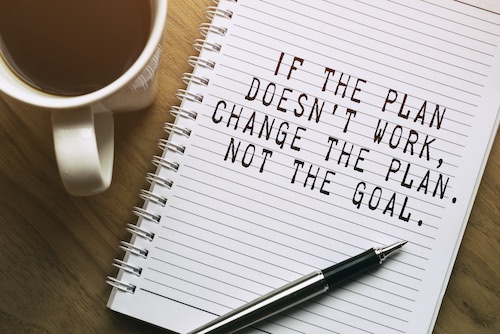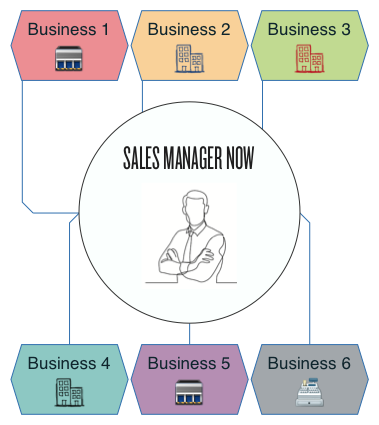Our firm began practicing fractional sales management in early 2006, and nearly 20 years later,…
6 Tips for Simple and Successful Planning
plan-ning (noun) : the act or process of making plans.
Sometimes we need to go back to ‘Webster’ and look up what a word means. My guess is most of us have never looked up the meaning of the word ‘planning’. For some of us, what is it about planning that is an anxiety-filled burden? Likely, it’s the fear of the unknown or the fear that we’re going to get it wrong. In fact, it is well documented that successful planning actually makes us confront those unknowns and the odds of us “getting it right” actually improve due to—wait for it—planning. The French writer and aviator, Antoine de Saint-Exupery, is given the credit for the phrase, “A goal without a plan is just a wish.” It doesn’t take much thought to realize the solid truth in that statement.

Even so, the common excuse “I’m just too busy” makes planning take a back seat to “winging it” or just “taking it as it comes.” For an artist, maybe that works, but in sales and sales management it doesn’t. Successful planning is critical to sales success. Every day should have some time devoted to planning. Just ten minutes a day can make a big difference in how your day proceeds. And in your planning, use a tool you’re comfortable with. If a legal yellow pad works for you—use it. If you’re a tech-type—use your phone, laptop, or computer. If you live and die by your calendar, use time blocking. Choose a tool, choose a process, and plan. Remember, too, that planning isn’t a static act. Successful Planning can be quick and specific, like for a sales call, or it can and should be a longer process that addresses goals and objectives connected to a timeline, like a 30-60-90-day plan inside of an annual plan or even a 3-5-year plan.
Take a moment and think about professional football. Hours are spent on planning a ‘game plan’. No coaching staff would even think of heading into a game without planning. And the success of the best—winning—is intimately and ultimately tied to planning in almost every situation. A few years ago, after the New England Patriots won the Super Bowl against the Seattle Seahawks, a young defensive player was being interviewed about the interception he made at the goal line at the end of the game. In that interview he shared that they had practiced that scenario a number of times during the week in preparation for the game. In that case, the plan even included ‘what if’ scenarios, which ended up being crucial. I’m sure you can think of some ‘what if’ sales moments in the past or that you are anticipating in the future.
There is no shortage of books and articles on planning. The challenge is taking the time to engage in the act of successful planning. Here are a few simple tips:
- Make a commitment in writing to planning sessions (daily, weekly, monthly…)
- Find an accountability partner(s) to ensure you stick to the commitment
- Block time on your calendar for planning (this is a date with yourself and your future self—do not cancel)
- Network with business associates for ‘best practices’ around planning
- Develop or use an existing template for your specific type of planning
- Keep your planning as simple and specific as possible
In sales, there are many opportunities to address through a solid planning process and should be routine. If a quarterly, midyear or annual review has never been part of your planning process, today is the day to start. If field rides or ride-alongs are required or vital to your role and responsibility, ensure you are planning these a few weeks in advance. If a high-profile client meeting is needed, gather the appropriate team members together, and utilize their inputs for planning a successful meeting. Leaving a meeting up to chance is false hope and unproductive. Ben Franklin said, “By failing to prepare, you are preparing to fail.” Wishful thinking, hoping for the best or a lack of preparation are all excuses that are fruitless—and waste time and resources. Successful planning involves intent, commitment, effort, and time.
Even the best-laid plans don’t always end up the way we want them to, but planning increases success dramatically. Hoping for success is far from planning for success.




Comments (0)